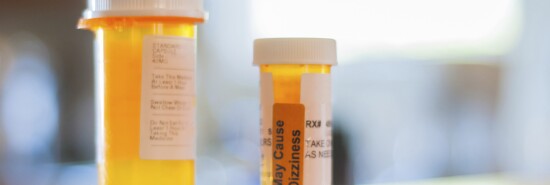
Patent Office is asking the right questions to lower drug costs
Dr. Rachel Goode
Video Embed
The United States Patent and Trademark Office (USPTO) is finally asking the right questions.
Brand pharmaceutical companies are gaming the patent system, and it’s costing us all. Fortunately, the Director of the U.S. Patent and Trademark Office, Kathi Vidal, seems poised to tackle what others before her have overlooked or ignored.
DRUGMAKERS TO RAISE PRICES IN 2023
Brand pharmaceutical companies are inappropriately extending their monopolies on the most expensive drugs in the market by protecting them behind a mountain of duplicative patents. These duplicative patents form an impenetrable thicket for competitors, keeping lower-cost alternatives at bay long past the time a branded drugmaker has recouped its investment, and long past the time its drug could be considered novel.
The rapid growth of patent thickets, however, has invited scrutiny. Congress has long taken comfort in the idea that branded drugmakers are patenting small improvements to existing products. A closer examination reveals that many patents thought to represent incremental innovation are actually duplicates, or “non-patentably distinct.”
To be clear, incremental innovations to improve therapies for patients are critical and not at issue here. Rather, the scheme to block competition relies on a little-known maneuver called obviousness-type double patenting (OTDP). Obviousness-type double patenting is what it sounds like — it is patenting one invention multiple times.
Obviousness-type double patenting is not allowed in other countries, but here in the U.S., you can patent the same invention, with slightly different wording, as many times as you want. Those patents must simply be linked together with a common expiration date (called a terminal disclaimer). Without this admission of obviousness-type double patenting, these patents would be rejected by the USPTO. In some cases, nearly 80% of a drug’s patents may be duplicative.
Why does it matter if a duplicative patent is approved if it expires at the same time as the original? Biosimilar makers work to identify weak, non-innovative, follow-on patents to challenge as a means to come to market sooner and compete. Challenging a patent, whether weak or strong, duplicative or innovative, costs about $1 million dollars from start to finish. A potential competitor must invalidate every single patent to enter the market. This becomes a cost-prohibitive proposition for a generic and/or biosimilar maker.
Branded drug companies know it’s a numbers game that their competitors can’t win. The result — delayed generic and biosimilar launches — keeps patients and the Medicare program paying higher prices for longer than anywhere else in the world.
In response to the growing problem, USPTO issued a series of policy proposals, on Oct. 4th, for public comment, aimed at improving patent quality, encouraging consistency in examinations, and tightening written description rules. Most importantly, though, the request for comment seeks input on how to tackle the issue of patent thicketing. Director Vidal has taken the issue up with gusto and appears to be asking all the right questions.
CLICK HERE TO READ MORE FROM THE WASHINGTON EXAMINER
The solution is common sense. An obviousness-type double patent determination and its accompanying terminal disclaimer should count as an admission of just that … double patenting. Patents tied together by a terminal disclaimer should rise and fall together, or terminal disclaimers shouldn’t exist at all. In other words, if a patent is invalidated, the patents linked to it by a terminal disclaimer would be deemed unenforceable. The proliferation of weak patents is bad for innovation and competition, for solvent health systems, and most importantly, for patients.
The USPTO’s “request for comment” strikes at the heart of the root cause of inflated drug prices. We strongly urge Director Vidal to implement these critical reforms.
Dr. Rachel Goode is senior vice president of Patents and Legal at Fresenius Kabi.
